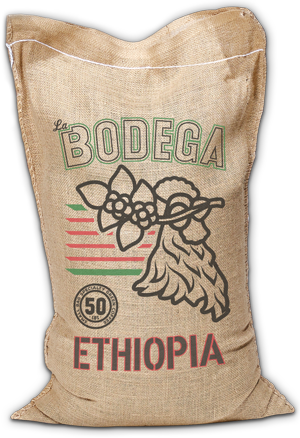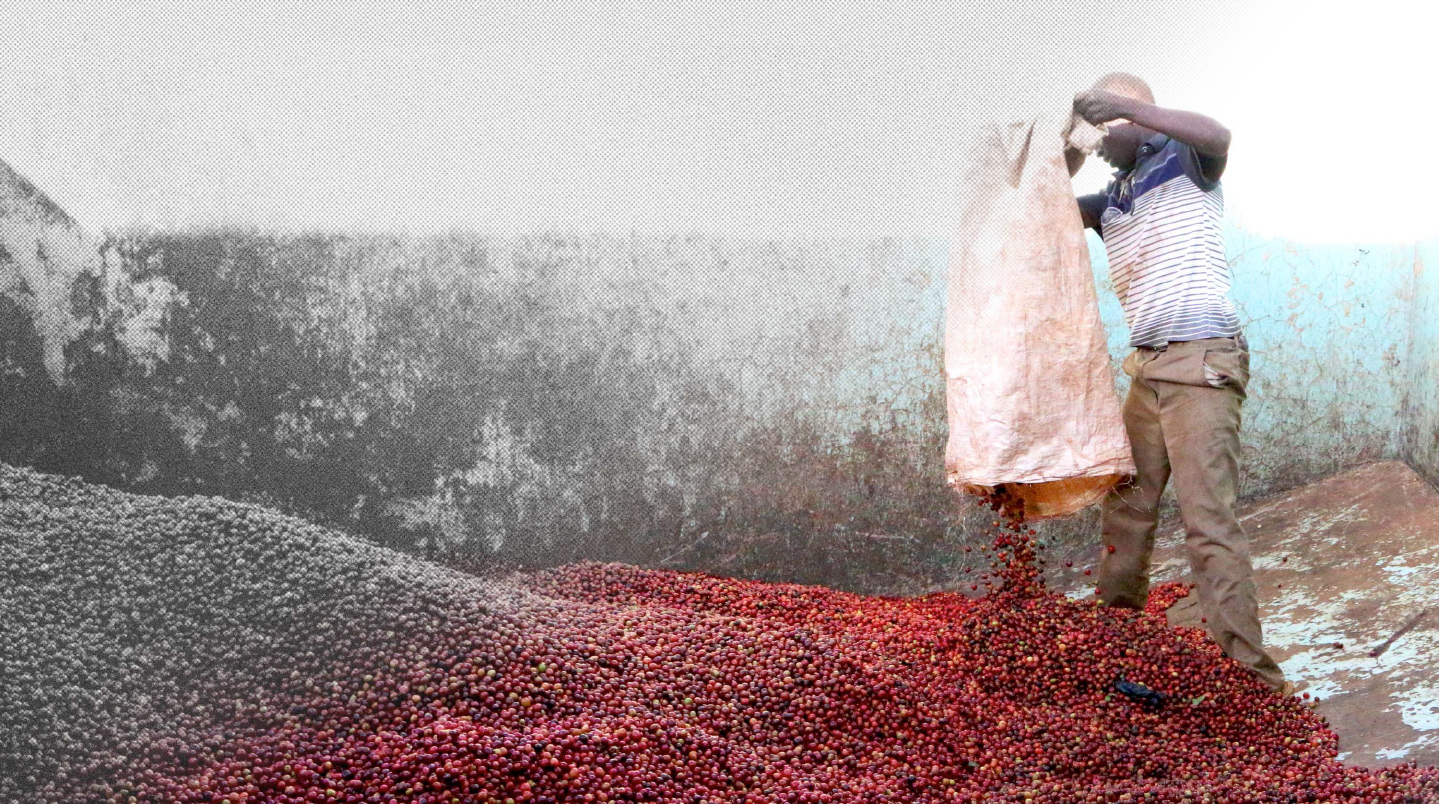Ethiopia – Washed Limu – Gera – Grade 1 B11942
Specs:

Source:
Ethiopia
Region:
Chirra, Gera District, Jimma Zone, Oromia
Farm:
750 smallholder farmers
Variety:
Heirloom Ethiopian varieties
Altitude:
1960–2050 masl
Processing:
Washed
Notes:
"Floral and citrus with lemon, chocolate and cherry flavors; sweet with lots of citric acidity and a smooth mouthfeel."
Price/Bag:
$5.25 per lb
$262.65 per bagOut of stock
Background:
In Gera District, we have partnered with the Faysel and Nazif Washing Station to produce this lot. The station serves 750 smallholder producers, collecting their coffee in cherry and processing it uniformly at the mill. The coffee is first depulped and fermented underwater for 24–36 hours. Then it is washed and laid on raised beds under a shade cover to dry. The drying takes 10–12 days.
Aside from its near-legendary status as the "birthplace" of Arabica coffee, there is much to love about Ethiopia as a producing nation, including but not limited to the incredible diversity of flavor and character that exists among microregions, specifically within the southwestern Gedeo Zone of Yirgacheffe within the region of Sidama—areas whose names alone conjure thoughts of the finest coffees in the world. Coffee was literally made to thrive in the lush environment Yirgacheffe’s forests provide, developing nuanced floral characteristics, articulate sweetness and sparkling acidity. However, coffee has also adapted to the more arid climate of Harrar, in the northeast of the country; the varieties planted there have historically had more chocolatey, rich undertones.
Processing, of course, also plays a significant part in what makes Ethiopian coffees distinct—both distinctly Ethiopian, as well as distinct from one another, washed or natural.
Until recently, coffee grown by smallholders and co-ops in Ethiopia were required to be sold through the ECX, where lots were classified by general region, quality (Grade 1–5), and escaped of most of their traceability. In March of 2017, the prime minister of Ethiopia approved a reform allowing co-operatively owned washing stations to export their coffee directly, which allows for separation of top coffee lots, higher prices for farmers, and increased recognition for the best quality coffees in Ethiopia.
Greater traceability allows us to buy more directly from the same washing stations year in and year out, and opens the potential for partnerships on a more micro level, with individual farmers or smaller groups within a community, to select out special lots.
Cafe Imports is proud to offer a variety of Ethiopian coffees—an inventory not simply diverse in flavor, but that also represents the various relationships and buying practices that exist within coffee's native region.
For more information about coffee production in Ethiopia, visit our Ethiopia Origin Page.
Recommendations
-

Bolivia – FTO La Paz – La Cooperativa Corpus Cristhy Illampu R.L – Red Catuai & Typica – FLO ID 3645
$ 5.14 per lb Add to cart -

Brazil – Organic Cascara – Cascara Tea – Espirito Santo – Fazenda Camocim – Biodynamic
$ 15.87 per lb Add to cart -

Burundi – Microlot – Gakenke – Kayanza – Washed
$ 6.05 per lb Add to cart -

Colombia – Decaf Origin Select – EA Decaf de Cana – Huila
$ 5.27 per lb Add to cart
